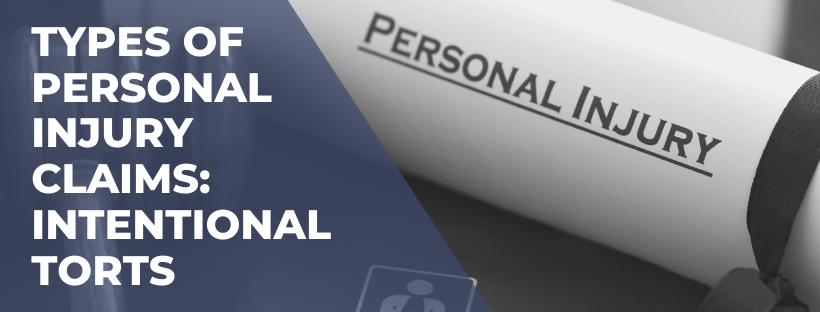We previously looked at the most common and well-known type of personal injury claim — that of negligence. But you can also bring a civil claim for injuries sustained where negligence was not involved, which is known as an intentional tort.
When you hire personal injury attorneys to handle this type of case, they will fight to get you justice and compensation for what happened to you. It’s a complicated area of the law, and you need the help from a personal injury law firm with many years of experience in dealing with claims of this nature, so you stand the best chance of a successful outcome.
Lawyers for Personal Injury and Intentional Tort Cases
An intentional tort is pretty much what it sounds like: it’s when someone sues for something that someone else did intentionally. The intent is sometimes specific, but at other times, it can be general.
Specific intent means a defendant intended to commit an act and wished for the consequences of what happened to occur. For instance, a defendant may have intended to punch someone in the face and wanted the result to be a broken nose. So if they said, “I’m going to break your nose,” that might be a good indicator of specific intent.
On the other hand, general intent means that an action was intentional, but the consequences were not — but a defendant generally knew that something bad would result. They may have punched someone in the face, for example, knowing that it would likely cause some kind of injury, perhaps a broken nose or black eye.
The advantage of claiming an intentional tort is that it may be easier to prove than negligence because you don’t have to prove duty, breach, cause, and harm. But the disadvantage is that intentional torts have much narrower definitions, so they often don’t apply to the situation that caused a person’s injuries.
Some common intentional torts are:
Battery
An unwanted touching. This is often thought of as violent, but any kind of touching commonly agreed to be offensive may qualify as a battery.
Assault
This is commonly confused with battery because the two tend to occur together. But the difference is that assault is either an attempt to commit a battery, such as swinging your fist at someone but missing, or threatening to commit a battery, such as saying, “I’m going to break your nose.”
False imprisonment
Imprisoning someone when you don’t have the right to do so is known as false imprisonment. It doesn’t require a physical prison, as force or the threat of force to keep someone in a location can also qualify as false imprisonment.
Intentional infliction of emotional distress
This is a difficult tort to prove, as it has several elements: intent and outrageous or extreme conduct that causes severe emotional distress.
Severe emotional distress is especially difficult to prove, and some states may require that there be physical manifestations. You may recognize this tort from the relatively recent Supreme Court case involving the Westboro Baptist Church’s funeral pickets. In this case, the Supreme Court had to balance free speech rights with the right to sue for intentional infliction of emotional distress.
Something else about intentional torts
The action of intentional torts is often illegal and is something for which an individual can sue with their lawyers for personal injury. Even if there’s a pending criminal case involving the defendant, or even if the defendant was acquitted of criminal charges, you can still sue for the same act. The bar to prove a civil case is lower than that of a criminal case. Perhaps the most famous example is OJ Simpson, who was acquitted of criminal charges but lost his civil case, resulting in a judgment of $25 million in civil damages.
If you’ve been injured by someone acting intentionally or negligently, contact the personal injury attorneys at Clardy Law Firm now and get a free consultation about your case and what your legal options are to get justice and compensation.




